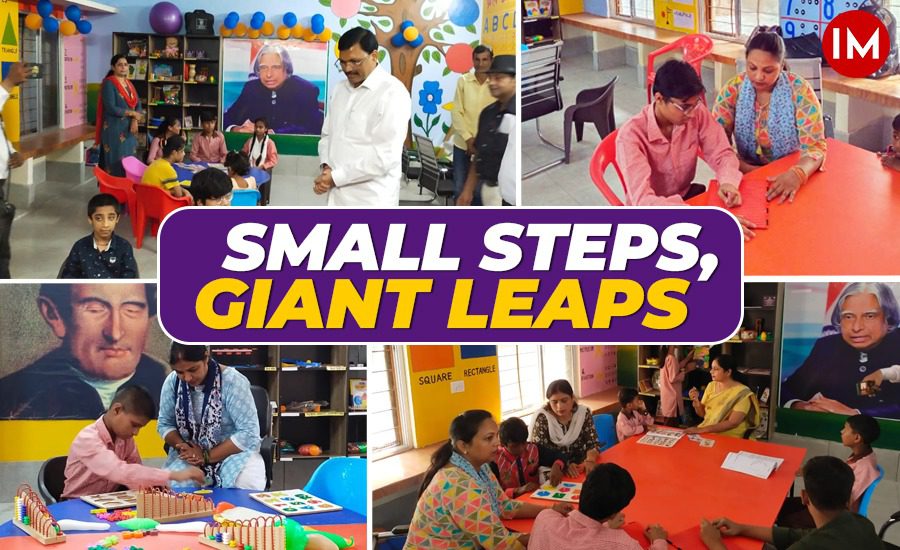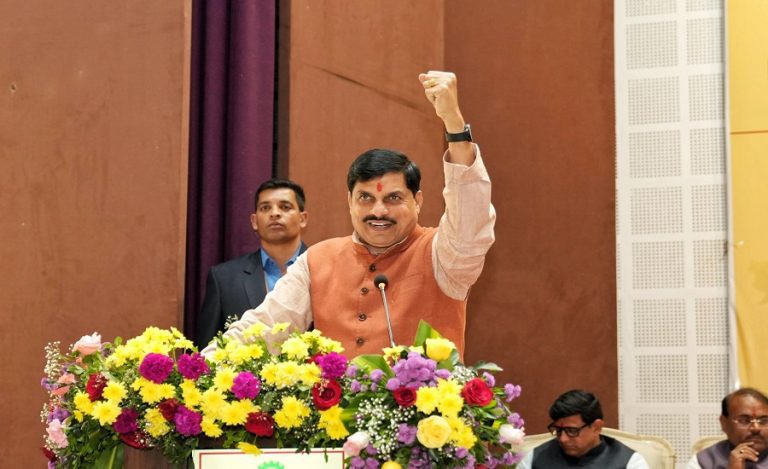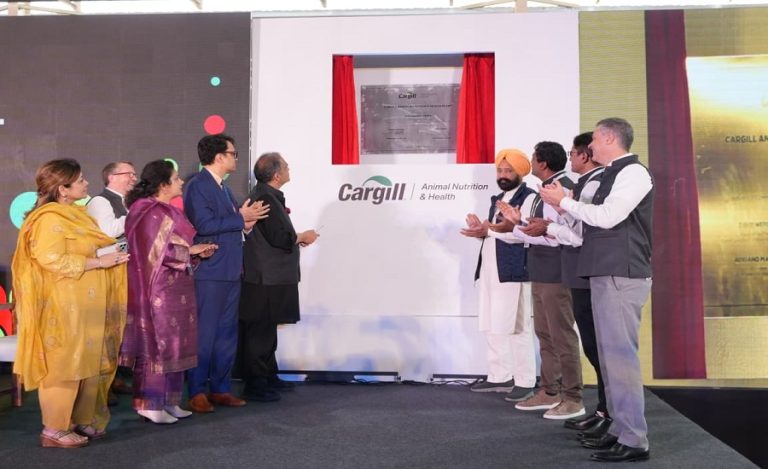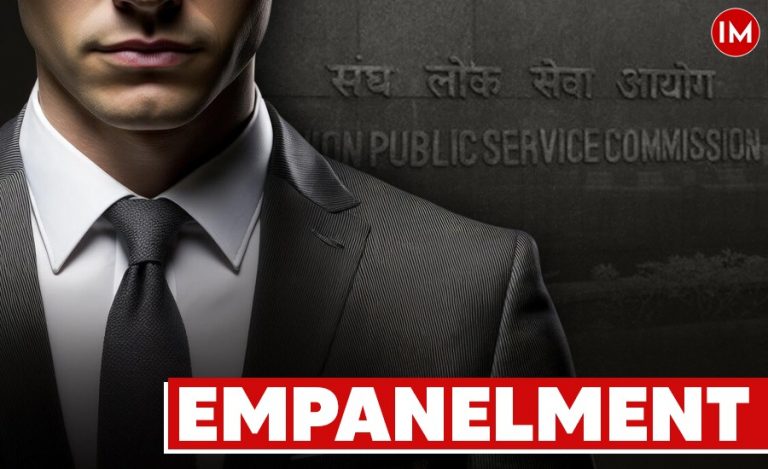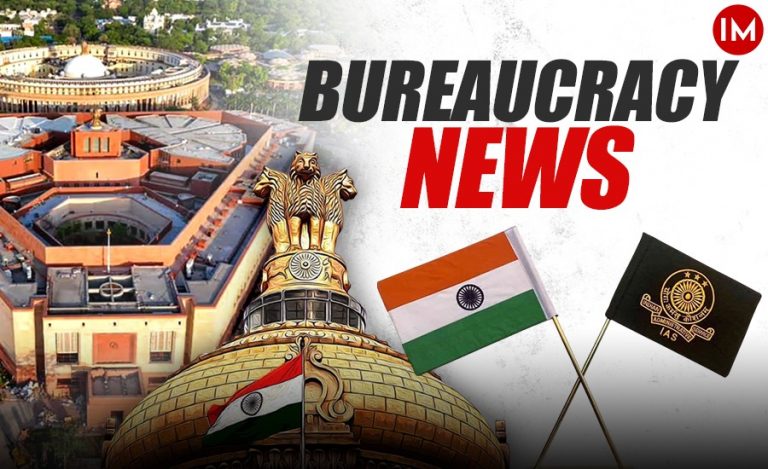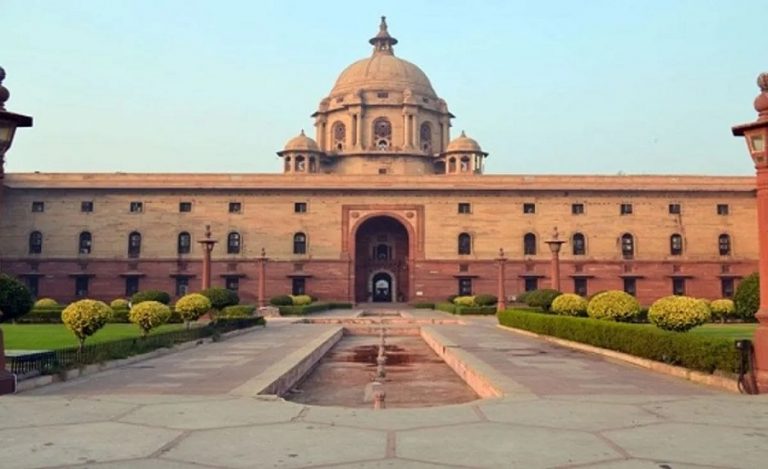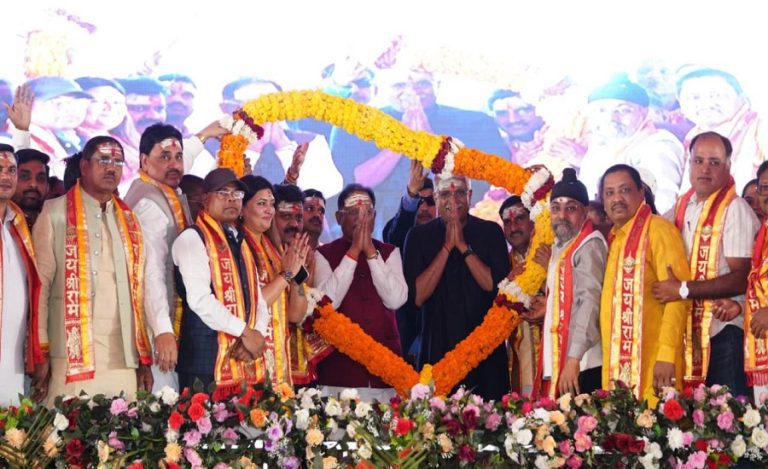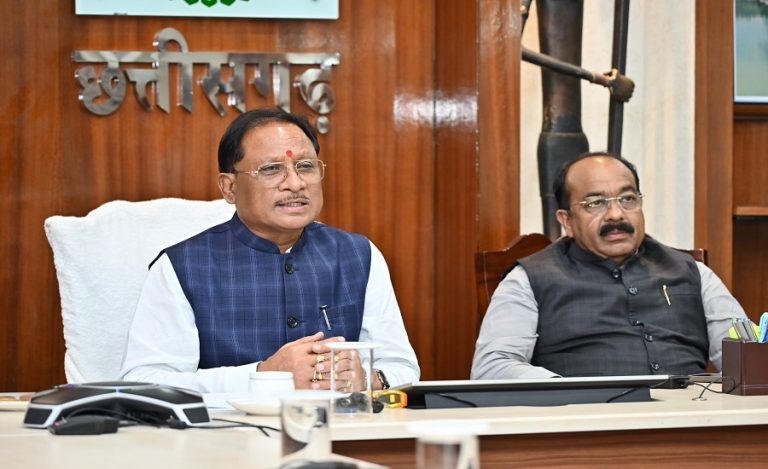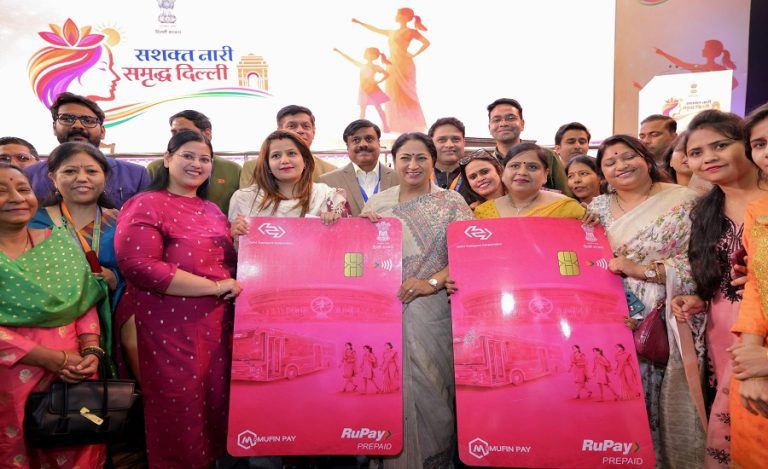Imagine a world where a child’s dreams are cut short not by lack of talent, but by the cruel twist of fate. A world where a love for learning dims not because of disinterest, but due to the absence of the right tools. This was the harsh reality that tugged at the heart of IAS officer Aunjaneya Kumar Singh who is the Divisional Commissioner, Moradabad. In Uttar Pradesh’s Moradabad, lies a unique library – Sugamya Library. This library doesn’t have ordinary collection of books. It’s a place specifically designed to empower children with disabilities, offering them a path towards education, opportunity, and a brighter future.
IDEA FOR THE LIBRARY
The idea of Sugamya library was born out of a personal connection. Mr. Singh’s sister Nivedita, who is close to him like a blood relative (though not by blood), faced the possibility of losing her vision due to a brain tumour. She repeatedly expressed her concern about the lack of accessible resources for visually challenged individuals.
“This incident planted a seed in my mind. The need for a space dedicated to the visually challenged, allowing them to continue their love for reading and learning,” Mr. Singh told Indian Masterminds. She even played a pivotal role in pushing the officer to develop this library.
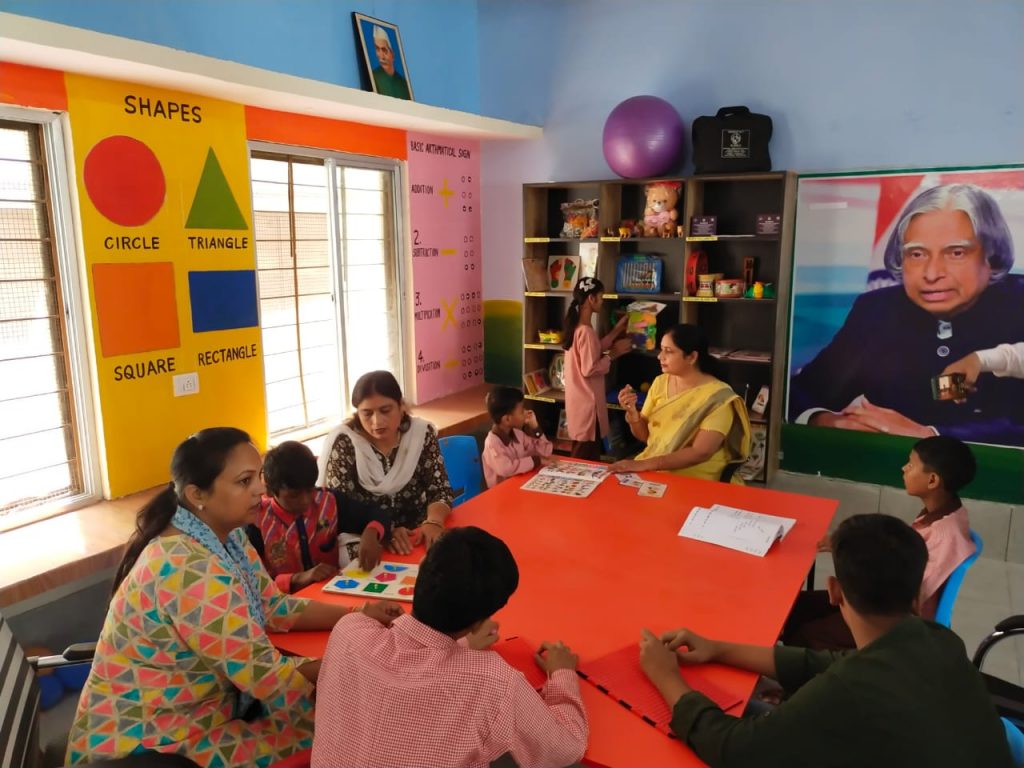
Fortunately, Nivedita recovered, but the idea stayed with Mr. Singh. Upon his transfer to Moradabad, he witnessed the challenges faced by specially-abled children, particularly those with visual and hearing impairments. While trained teachers were available, the lack of proper facilities hampered their ability to effectively support these students.
UP’S FIRST LIBRARY FOR SPECIALLY ABLED KIDS
Driven by a desire to bridge this gap, Mr. Singh joined forces with the Smart City initiative, the Moradabad Development Authority, and the Chief Development Officer (CDO) to launch the Sugamya Library on a pilot basis. At the grassroots level, this marks the first specially-abled children’s library in Uttar Pradesh.
The initial focus was on equipping children with the fundamental skills they needed, independent of electronic devices.
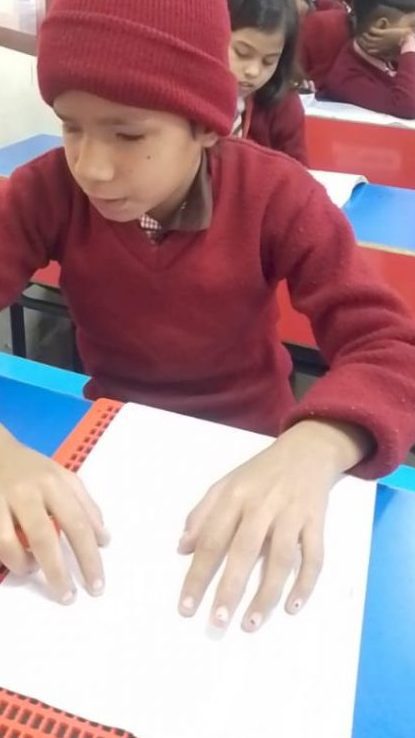
COCHLEAR IMPLANTS AND THERAPY
Mr. Singh’s vision extended beyond just catering to the visually impaired. “I recognized the crucial role of speech therapy for children with cochlear implants. Without a proper therapy, kids weren’t able to speak or learn properly,” the officer added.
Having witnessed firsthand the transformative power of cochlear implants and the subsequent need for therapy, he actively assisted several underprivileged families in getting their children the necessary medical intervention.
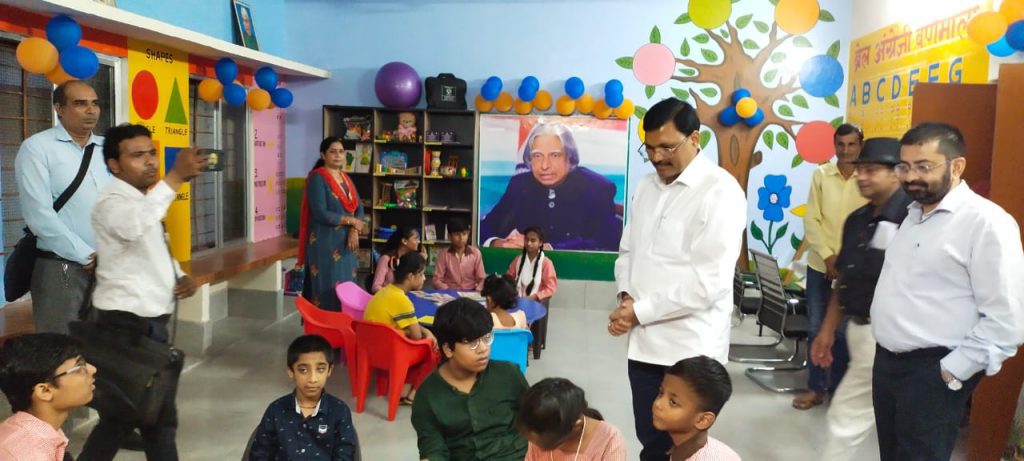
TRAINING TOO
The library is providing Braille training, Taylor’s mathematical frame with types, an abacus, a sound ball, etc apart from special books.
The initial setup of the library was a cost-effective endeavour, leveraging the existing pool of trained teachers. However, with the program’s encouraging results, plans are underway for significant expansion.
“The Moradabad Development Authority is set to establish a larger library with highly trained teachers,” Mr. Singh shared. Additionally, he envisions establishing at least one such library in every tehsil across the district.
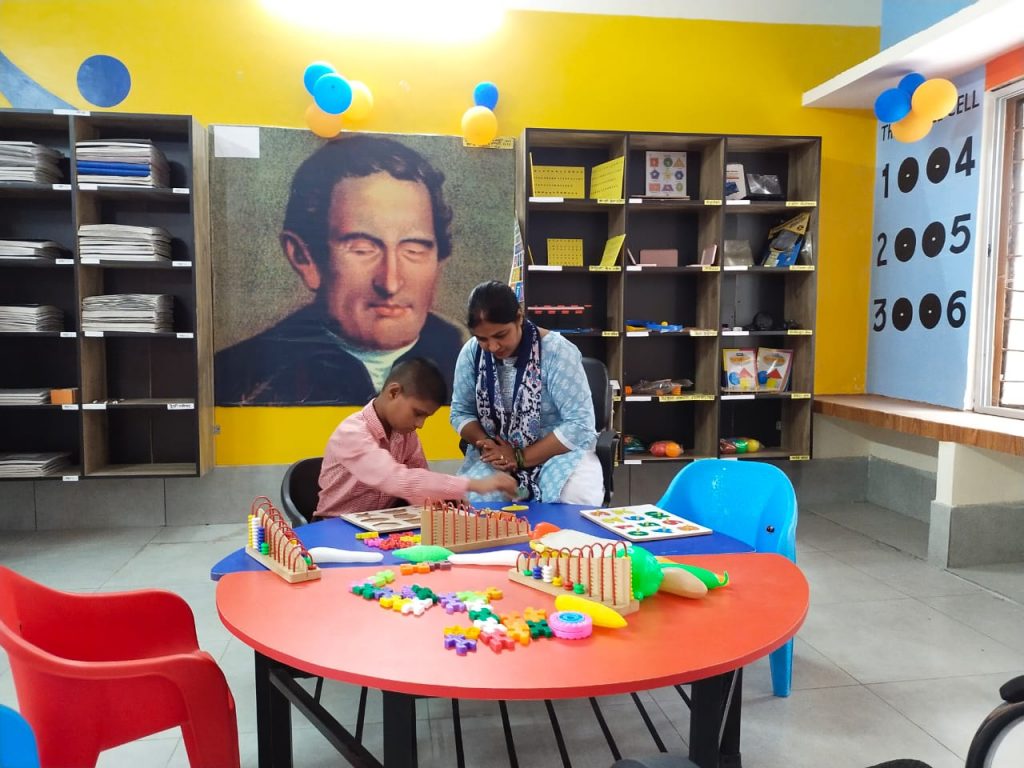
Further solidifying the initiative’s credibility, Mr. Singh met with a DANIPS officer who was completely blind. This officer, serving in Puducherry, visited the Sugamya Library and was thoroughly impressed. “The person going through all this can help more than the one having all the facilities with a normal life.”
UPSC DREAMS
The impact of the Sugamya Library has been profound. Fifteen to sixteen children are coming regularly, and they are showing improvement. Sharing a story, Mr. Singh shared that a young boy who tragically lost his vision due to an accident is now learning braille.
“During one of my visits, he expressed his desire to crack the UPSC exams, to which I encouraged him, telling him that he could achieve it. Therefore, we are actively working to support and shape his dreams.
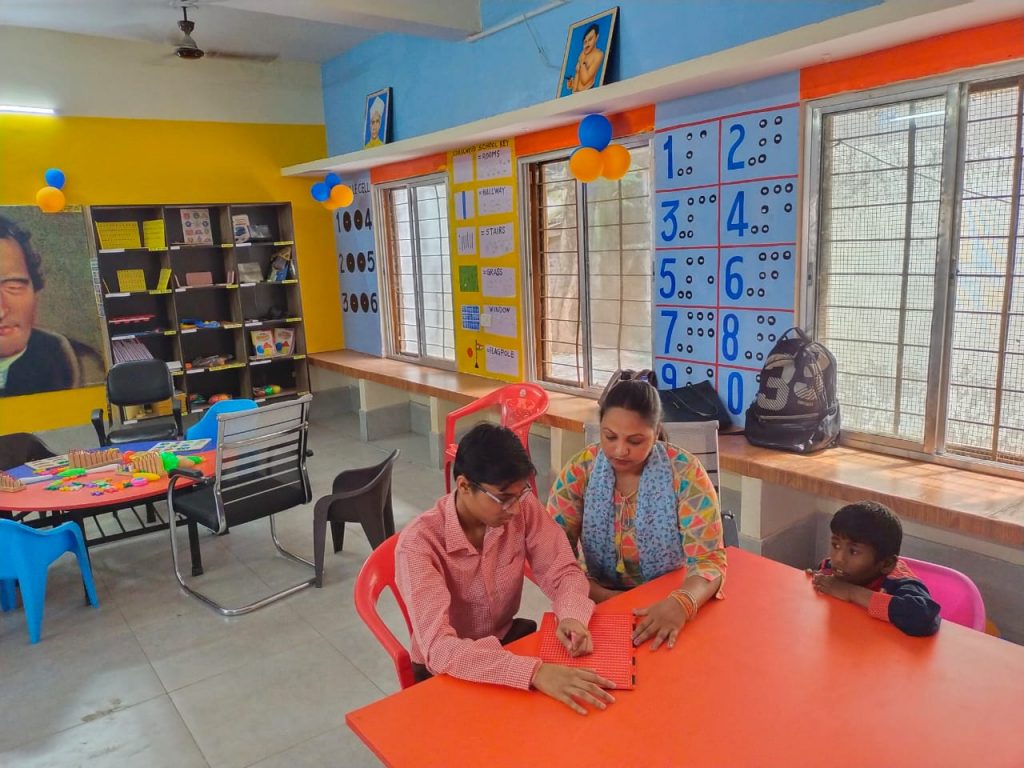
NEED TO EMPOWER THE SPECIALLY-ABLED
Mr. Singh emphasizes the importance of creating a level playing field. He acknowledges that even individuals within the administrative system often lack awareness about the challenges faced by the specially-abled community. His own personal encounters and witnessing the positive transformations brought about by the library serve as a constant source of motivation.

